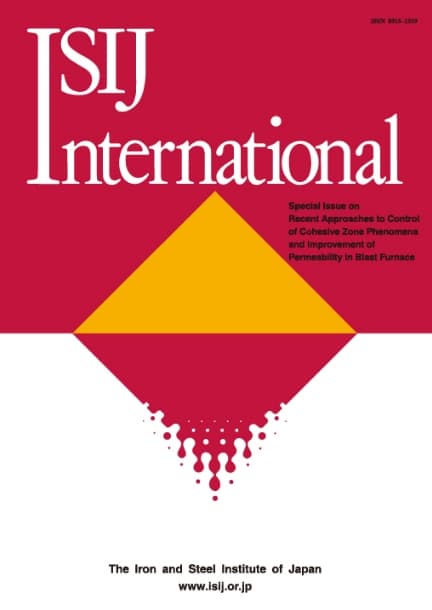The Preferable Growth Direction of Iron Nuclei on Wüstite Surface during Reduction
Yasushi SASAKI, M. BAHGAT, Manabu IGUCHI, Kuniyoshi ISHII
pp. 1077-1083
Abstract
Effects of the surface grain's orientation on iron nucleation process during wüstite reduction at 1073 K have been studied. Wüstite samples initially equilibrated for 432 ks with 50%CO-CO2 gas mixture at 1073 K are reduced by using 75%CO-CO2 gas mixture with varying reaction time. The surface orientation of each grain is determined by using Electron Back Scattering Diffraction (EBSD) technique, and the surface morphology and the development of iron nuclei are examined by FE-SEM.
The apparent reduction rate of wustite is about 1.78×10-8 mol/cm2/s and contrlled by the interfacial chemical reaction. For the reaction time of more than 90 s, the iron nuclei are detected on the wüstite sample and their magnitudes are gradually increased with time. The shape of developed iron nuclei is a pyramidal shape with a square base. The iron nuclei grow preferentially on the rearranged (100) surface of wüstite. This is because that the Fe nuclei can be easily formed on the (100) wüstite surface since there is a negligibly small mismatch between Fe and wüstite lattices. It has been found that the surface energy as well as the interface energy between Fe and wüstite affect the shape of iron nucleus.










